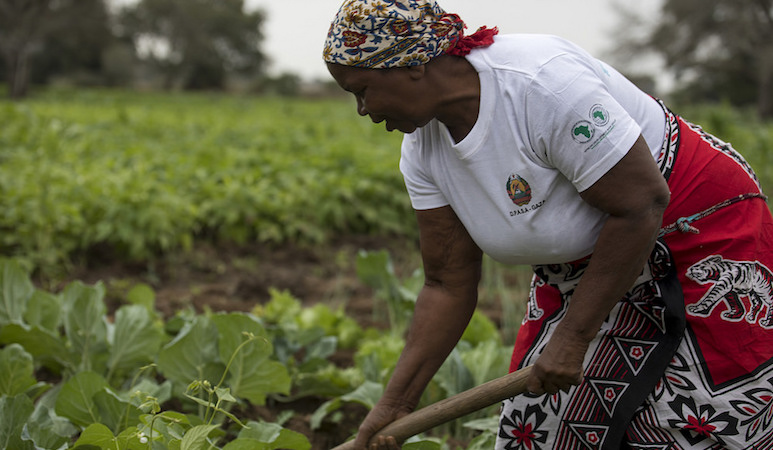Filomena Alfredo Xandlala is a farmer in the Chongoene District near Magula, Mozambique.
Her community was devastated by record-breaking floods in 2000. Families were cut off from aid and many residents died.
For her part, Xandlala lost the entirety of her rice crop, and seeing no way to rebound, decided to abandon farming altogether. In the years that followed, she lived from hand to mouth, subsisting on nothing more than the support of an emergency aid program.
Fortunately, Xandlala, a grandmother to 18 children, learned of an opportunity to return to farming and be trained in sustainable agricultural practices.
In this flood-prone region of Mozambique, the Climate Investment Funds (CIF) is investing $15 million, in cooperation with the African Development Bank (AfDB), to bolster crop production and improve the lives of some 8,000 farming families. By offering training in climate-smart agriculture, new climate-proofed seeds, weatherizing for rural roads and irrigation systems, and localized processing and storage facilities, the project is a model for other parts of Africa.
Xandlala and 479 other farmers enrolled in one of the training programs that teaches them how to grow crops in all seasons, rain or shine. Now she is farming again and says the skills she has learned here – flood irrigation, maintaining water levels, weed control, and applying fertilizers – will improve her yields. She also appreciates the fact that unlike before, she no longer feels like she is farming all by herself.
“This project has taught us a lot about farming and we’re excited about having better harvests. We feel hope for the future,” she said.
Climate change will continue to take a heavy toll on Africa, especially where appropriate adaptation and mitigation plans for agricultural systems are not in place. But Xandlala and her fellow farmers are showing that a more resilient future is not only possible, but already underway.
This post is sponsored by the Climate Investment Funds. See our editorial guidelines for what this means.
